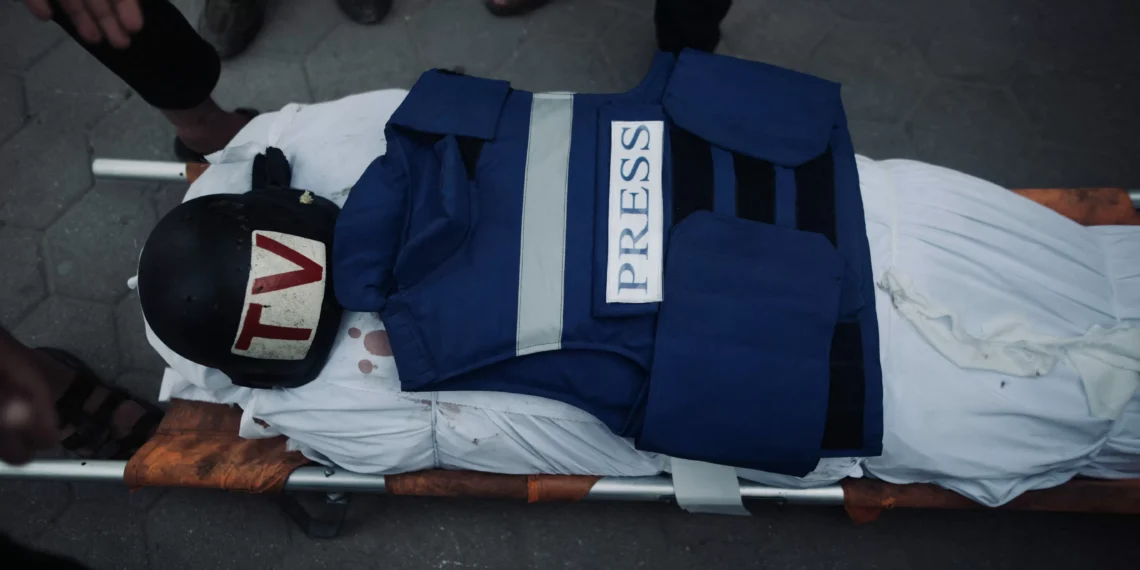In recent years, the issue of press freedom has become a growing concern in many parts of the world. Journalists are being targeted and attacked for simply doing their jobs – reporting the truth to the public. This sad reality was once again highlighted in the recent events in Gaza, where five journalists were killed or wounded while covering the ongoing conflict.
One particularly heartbreaking incident was the death of Fadi, a journalist working for a local news agency. He was wearing his press uniform when he was fatally shot by Israeli forces. It was not a random act, but a deliberate and direct targeting on purpose. This tragic incident has left the journalism community in shock and disbelief, and has reignited the debate on the safety and protection of journalists in conflict zones.
Fadi was not the only journalist targeted during the four-day conflict in Gaza. Four others were also killed or seriously wounded. It is a sobering reminder of the dangers that journalists face and the sacrifices they make in order to bring us the news from the frontlines.
As journalists, our job is to report the truth, to be the eyes and ears of the public. We put our lives on the line to bring you the stories that need to be told. But at what cost? In recent years, we have seen an alarming increase in the number of journalists being killed or attacked while doing their jobs. According to the Committee to Protect Journalists, 42 journalists were killed in 2020, and another 274 were imprisoned. This is a clear violation of press freedom and a threat to democracy.
The targeting and killing of journalists is not only a threat to the individuals and their families, but it is also a threat to society as a whole. When journalists are silenced, the truth is silenced. And when the truth is silenced, democracy and freedom suffer. We must stand together and demand that journalists be given the protection they deserve while carrying out their duties.
In the case of Fadi, it is particularly alarming that he was wearing his press uniform when he was targeted. This raises serious questions about the rules of engagement and the disregard for the safety of journalists. It is the responsibility of all parties involved in a conflict to ensure the safety of journalists and to allow them to work without fear of being targeted.
The death of Fadi and the other journalists in Gaza is a tragic reminder that the world is a dangerous place for journalists. But we cannot let fear silence us. We must continue to report the truth and shine a light on the atrocities and injustices happening in the world. Our voices must be heard, and our stories must be told.
It is also important for governments and international organizations to take action and hold those responsible for the targeting and killing of journalists accountable. The United Nations Security Council has adopted Resolution 1738, which calls for the protection of journalists in conflict zones. But this resolution needs to be fully implemented and enforced in order to make a real difference.
Furthermore, media organizations must also provide proper training and equipment for journalists working in dangerous environments. Journalists should not have to put their lives on the line without proper protective gear and support from their employers.
In conclusion, the death of Fadi and the other journalists in Gaza is a tragic reminder of the dangers that journalists face every day. We must honor their memory by continuing to report the truth and by demanding that governments and international organizations take action to protect journalists. We must also remember that press freedom is a fundamental human right, and when journalists are silenced, so are our voices and our right to know the truth. Let us stand together and demand justice for Fadi and all the journalists who have lost their lives in the line of duty.







